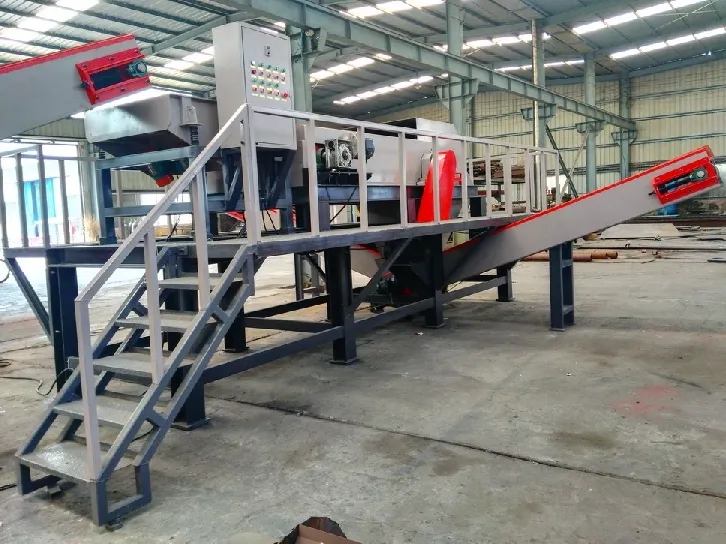

វិច្ឆិកា . 15, 2024 12:54 Back to list
Understanding Two Shaft Shredders A Key Component in Waste Management
In the contemporary landscape of waste management and recycling, two shaft shredders have emerged as a pivotal technology in transforming how materials are processed. These robust machines play an essential role in a variety of industries, including plastics recycling, metal processing, and even e-waste management. Their ability to reduce large volumes of waste into manageable pieces not only enhances recycling efforts but also promotes environmental sustainability.
How Two Shaft Shredders Work
Two shaft shredders operate using two parallel shafts that rotate in opposite directions. With sharp, interlocking blades attached to each shaft, these machines are designed to capture and shred materials as they feed into the device. The design allows for efficient handling of a wide array of materials, including but not limited to plastics, rubber, wood, and metals. As the materials move through the shredding process, they are torn apart and reduced to sizes ranging from a few inches down to finer particles, depending on the machine's configuration.
The adjustable settings of the blades make these shredders highly versatile. Operators can modify the speed and distance between the shafts to ensure optimal performance for specific materials. This versatility is particularly advantageous in recycling operations, where different types of waste require different processing techniques.
Applications
One of the primary applications of two shaft shredders is in the recycling industry, where they help convert waste into raw materials that can be reused in manufacturing. For instance, in the plastics sector, these shredders efficiently handle various types of plastic waste, reducing it to smaller fragments that can be melted and remolded into new products. Similarly, in the metal recycling industry, they can be used to shred scrap metals, making it easier to sort and process them for reuse.

In addition to recycling, two shaft shredders are also vital in waste-to-energy facilities, where they help prepare organic and other waste types for combustion
. By shredding the waste into smaller particles, facilities can enhance the efficiency of energy recovery processes, ultimately contributing to cleaner energy production.Benefits
The benefits of using two shaft shredders extend beyond operational efficiency. They significantly reduce labor costs and time associated with waste processing. The simplicity of operation allows staff to focus on other critical tasks rather than manually sorting and shredding waste. Moreover, the consistent output size enhances downstream processing, ensuring that materials are uniform for subsequent recycling stages.
From an environmental perspective, two shaft shredders contribute to waste reduction and resource recovery, aligning with global sustainability goals. By facilitating effective recycling and waste management, they help minimize landfill usage and lower the carbon footprint associated with waste disposal.
Conclusion
Two shaft shredders are indispensable tools in modern waste management and recycling operations. Their ability to efficiently shred diverse materials makes them crucial for industries aiming to enhance sustainability and reduce waste. As technology continues to evolve, these machines will likely become even more advanced, offering greater efficiency and improved capabilities. For businesses seeking to optimize their waste processing, investing in a two shaft shredder can be a transformative decision that drives both economic and environmental benefits.
Latest news
Troubleshooting Common Eddy Separator Problems
NewsJul.04,2025
The Role of Metal Recycling Plants in Circular Economy
NewsJul.04,2025
The Impact of Recycling Line Pickers on Waste Management Costs
NewsJul.04,2025
Safety Features Every Metal Shredder Should Have
NewsJul.04,2025
How Industrial Shredders Improve Waste Management Systems
NewsJul.04,2025
How Cable Granulators Contribute to Sustainable Recycling
NewsJul.04,2025